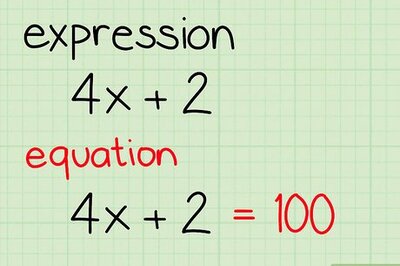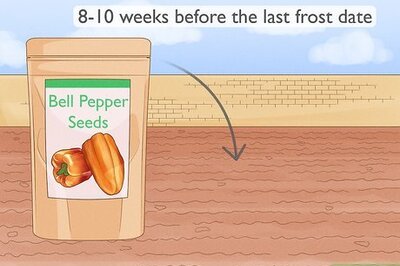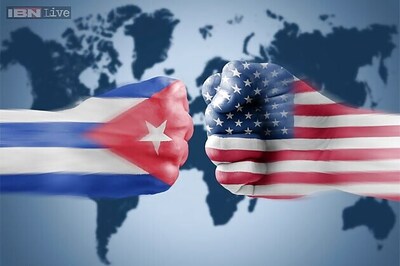
views
New Delhi: It was a turnaround that even the man on the street is bound to look at with suspicion.
And given the sequence of events, Left opponents are quick to link CPI-M's about-turn on the nuclear deal to Nandigram. The BJP, for one, has even called it a tradeoff between the Left and the UPA.
'Do or die' was the only stand that the Left parties were talking about over the past months ever since the UPA Government unveiled the draft of the deal.
All this while, the four Left parties had been adamant that the government back out of the nuke deal, distance itself from Washington and pursue a more independent foreign policy. Failing which, the Left threatened, it will bring in a no-confidence vote against the Government.
“If you go ahead with the nuclear deal, we will immediately go to the President, ask for a confidence motion in Parliament and vote with the NDA to bring down the Government,” a Left leader had told the PM during a meeting of the Left-UPA committee on the nuclear deal on October 9.
This forced the PM to put the nuclear deal in the deep freeze in spite of repeated warnings from Washington to proceed fast on the deal. So much so that many had already written off the nuclear deal and doomsayers were busy predicting an early exit of the UPA Government and snap polls in the country sometime next year.
Then came the about-turn. The first hint came on November 2 when CPI General Secretary AB Bardhan floated the idea of a 'consensus' on the Indo-US nuclear deal. He had, however, added a rider then, saying "It depends on what action the government takes."
Even on Monday, CPM General Secretary Prakash Karat had insisted that there was no change in his party’s position that the deal should not be operationalised before the UPA-Left panel on the agreement comes out with its findings.
But on Tuesday, the party said it has allowed the government to discuss the Indo-US nuclear with the International Atomic Energy Agency (IAEA), which was a complete reversal of its stand that the deal must not be ‘operationalised’.
What triggered the Left second thought? Was it hectic backdoor politicking by the UPA crisis managers, was it a compulsion born out of impending elections or was it Nandigram, where the turn of events has suddenly split the ranks in the Left front and put CPM on the backfoot?
The BJP was quick to claim that the 'climbdown' by the Left on the nuclear accord was the result of a 'trade-off' between the Government and CPI(M) over Nandigram. "The compromise has exposed the Marxist party's drama over its opposition of the deal," the party said.
That the UPA used the Nandigram issue to corner the Left is no secret. Pranab Mukherjee, who had had a bitter time as the head of the UPA-Left panel on the nuclear deal, had taunted the CPM on Monday, saying "if Prakash Karat can bring the Nepal Maoists to the negotiation table, he should be able to do the same in the state that his party rules."
PAGE_BREAK
This also indicates that nothing has changed in between for Mukherjee to forget the bitterness that he had with the Left as a crisis manager of the Congress. But he indeed was quick to grab the opportunity and called a meeting of the Left-UPA panel on November 16 to firm up a view on the issue.
On Sunday, CPM politburo member Sitaram Yechury had held detailed discussions with External Affairs Minister Pranab Mukherjee on the issue. Before that, Prime Minister Manmohan Singh, UPA Chairperson Sonia Gandhi and Mukherjee held crucial talks with Left leaders Prakash Karat and AB Bardhan in an apparent attempt to break the ice on the nuclear issue.
But was the Left decision a culmination of these discussions?
The BJP doesn't think so. It says its "apprehension that the Left objection and opposition to the nuclear deal was not based on principle but on convenience has ultimately come true" in the wake of the CPI(M)'s 'compromise' with the government.
"The moment they got into political difficulties because of Nandigram they have come forward to compromise with the government on the deal and offered concessions," senior BJP leader Yashwant Sinha said.
Sinha alleged that there was a trade-off between the Congress-led Government and ally CPI(M) that they will help each other on Nandigram and the nuclear deal and adoption of a "soft attitude" by the Left makes this understanding evident.
"The Prime Minister is silent on Nandigram, which the Governor had described as a war-zone. Had it been a non-UPA or non-Left ruling state, the government would have descended heavily on the state," he added.
Sinha said the BJP had all along been suspecting that the Left opposition to the deal was a 'drama' the 'last act' of which was played out today. "The Left stand completely exposed today on the nuclear deal issue," he said.




















Comments
0 comment